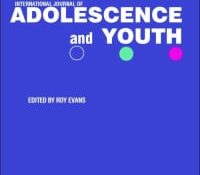tandfonline.com har udgivet en rapport under søgningen „Teacher Education Mathematics‟: ABSTRACT ABSTRACT It is commonly assumed that the reason many young people do not participate in informal STEM education (ISE) is because they lack interest in STEM. This paper draws on survey (n = 1,624) and qualitative data (n = 36) with young people aged 11–14 to examine the ways in which science dispositions, demographic characteristics, ‘consumption’ of cultural practices and exclusion interact to produce unequal forms of STEM participation. Latent class analysis generated six groups within our quantitative dataset: three groups who infrequently participated in designed and community ISE practices (Underserved Tech Enthusiasts, Underserved Creatives and Underserved Scientists), one group who only participated in specific forms of ISE practices (Partly Served Generalists) and two groups who frequently participated across a broad range of… Continue Reading →
Like this:
Like Loading...
tandfonline.com har udgivet en rapport under søgningen „Teacher Education Mathematics‟: Young people’s experiences of sexual and reproductive health interventions in rural KwaZulu-Natal, South Africa Link til kilde
Like this:
Like Loading...

tandfonline.com har udgivet en rapport under søgningen „Teacher Education Mathematics‟: ABSTRACT ABSTRACT Substantial research has shown that changes in contemporary western societies have prolonged transitions from youth to adulthood and altered the conditions and timing of transitions in education, work and family formation. Thus, contemporary society is creating new temporal conditions with important implications for social institutions, organisation of education, work arrangements, and individual career choices. The presented study explores temporal dimensions of career choices and transitions in this context from perspectives of young people in a small town in Sweden. Three specific temporal questions are addressed: How are time horizons constructed in young peoples´ career narratives; in what ways do individual temporal strategies and orientations towards the past, present and future interact with opportunity structures and socio-geographic space; and… Continue Reading →
Like this:
Like Loading...


